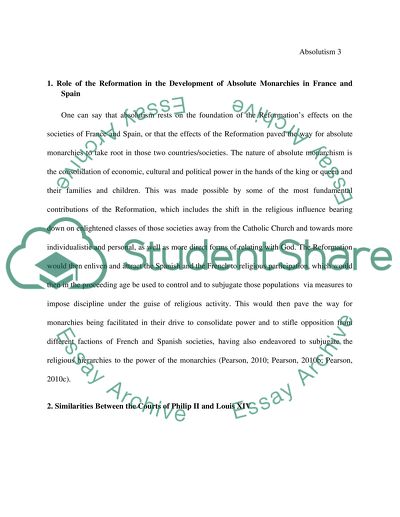Cite this document
(“Absolutism Essay Example | Topics and Well Written Essays - 1500 words”, n.d.)
Retrieved from https://studentshare.org/history/1628362-absolutism
Retrieved from https://studentshare.org/history/1628362-absolutism
(Absolutism Essay Example | Topics and Well Written Essays - 1500 Words)
https://studentshare.org/history/1628362-absolutism.
https://studentshare.org/history/1628362-absolutism.
“Absolutism Essay Example | Topics and Well Written Essays - 1500 Words”, n.d. https://studentshare.org/history/1628362-absolutism.


